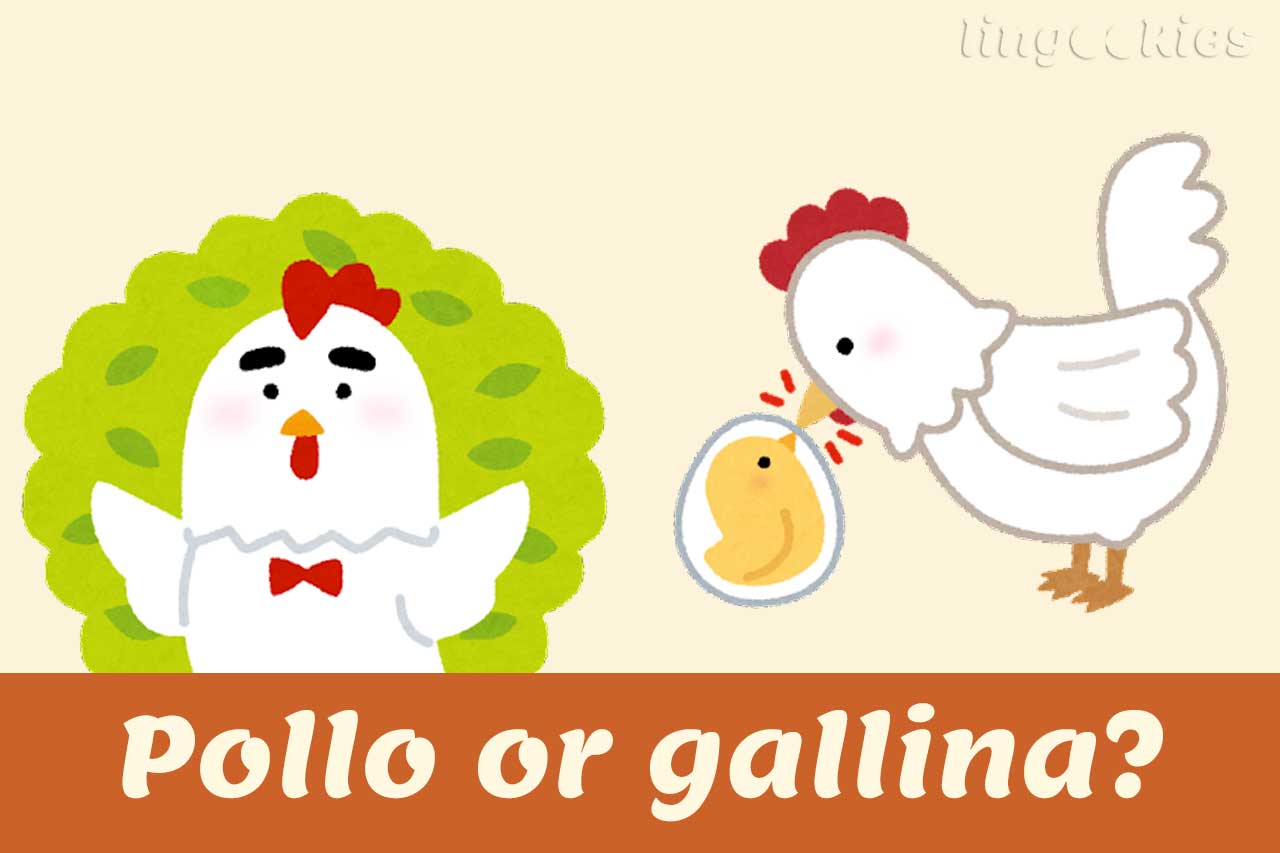Difference between pollo and gallina in Italian
The difference between pollo and gallina in Italian is really in their purpose.
What is a “pollo”?
Pollo is either a male or female chicken that has been specifically bred for meat.
Il pollo
The chicken
Since male chickens are larger than hens, pollo usually refers to a young male chicken that Italians will buy at the supermarket (supermercato).
When you’re out doing your shopping, you don’t look for a gallina unless you want to buy a living hen to keep as an egg-laying machine. If you want to eat chicken for dinner, you have to search for carne di pollo (chicken meat), because that’s the word you’ll find on the price tags. Not gallina.
Pollo is also the word used to translate roast chicken in Italian.
Il pollo arrosto
The roast chicken

What is a “gallina”?
Gallina is always a female chicken, a hen specifically bred for eggs.
La gallina
The hen
Can you find this word anywhere in an Italian supermarket? Yes, on eggs packaging.
If you’re buying eggs, you’ll often see something on the package that says uova da galline allevate a terra, which means eggs from caged hens. Or uova da galline allevate all’aperto, which means eggs from free-range hens.
You won’t find gallina in the meat aisle. That’s reserved for polli (plural for pollo).
Gallina allevata a terra
Cage-free chicken
Literally: Chicken bred on the ground
Gallina allevata all’aperto
Free-range chicken
Literally: Chicken bred outdoors

Gallina is also the word you’ll use to say that you have chickens. Tenere le galline means to keep chickens in a chicken coop or hen house.
Funnily enough, the Italian translation for chicken coop comes from pollo.
Il pollaio
The chicken coop, hen-house
What are “gallo” and “chioccia”?
Now that we have mentioned chicken coops, we can also talk about the less common types of chickens in Italy: the roosters, i galli, and the brooding hens, le chiocce.
The gallo is the older male chicken bred specifically to guard the henhouse.
Il gallo
The rooster
Chioccia is a mother hen with pulcini, chicks. These animals are known for their fierce protective instincts, so chioccia in Italian, most commonly as mamma chioccia, means an overprotective kind of mom.
La chioccia
The brooding hen
Il pulcino
The chick

Common sayings with chickens and hens
Some of these expressions don’t really have an English counterpart, so I’ll give the literal translation in parentheses along with the meaning.
Gallina vecchia fa buon brodo
Gallina vecchia fa buon brodo
(An old chicken makes a good broth)
It basically means that there is wisdom in old age.
This is a very old saying, dating back to the Medieval age.
Cervello di gallina
Cervello di gallina
Birdbrain
(Chicken brain)
The Italian equivalent for the English “birdbrain” is chicken brain.
Conoscere i propri polli
Conoscere i propri polli
(To know one’s chickens)
This is used when you know someone or something so well that you can easily predict their behavior, similar to “I know who I’m dealing with”.

Pollo da spennare
Pollo da spennare
An easy target for money
(A chicken to pluck)
A pollo da spennare, from penna meaning feather, is a gullible person who is most likely to fall prey to your scams and lose money.
Far ridere i polli
Far ridere i polli
Be a laughing stock
(To make the chickens laugh)
When you make the chickens laugh, it means you’re a laughing stock.
Andare a letto con le galline
Andare a letto con le galline
To go to bed very early
(To go to bed with the chickens)
Chickens are famous for going to bed while the sun is still shining, so if you “go to bed with the chickens”, it means you’re going to bed very, very early.
More free Italian resources
You might want to keep learning Italian online with these free Italian resources:
❤️ If you liked this lesson on the difference between pollo and gallina in Italian, share it with your friends!


